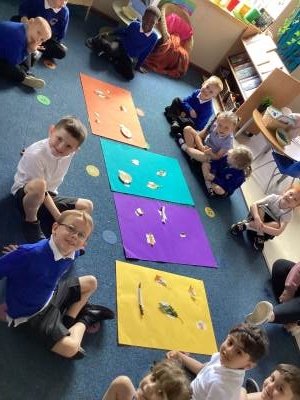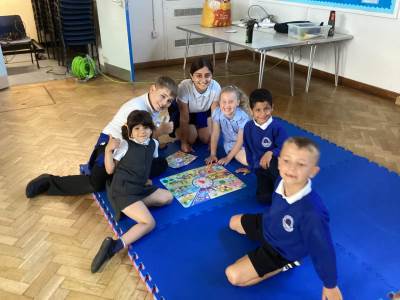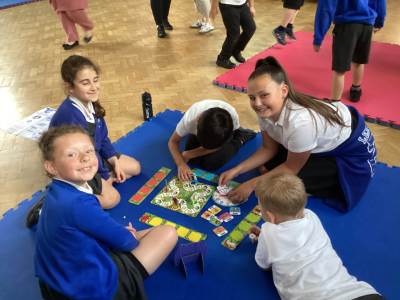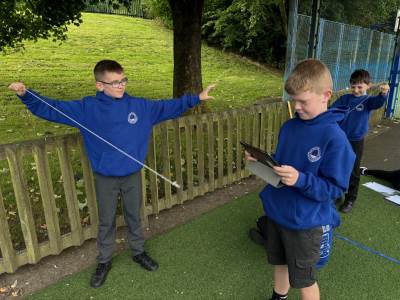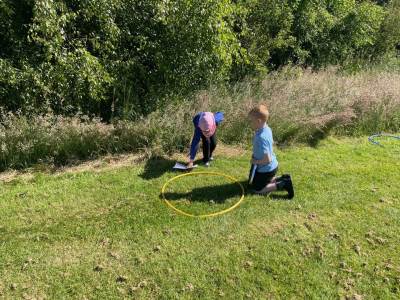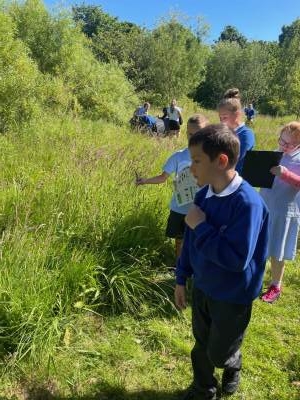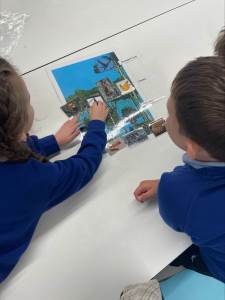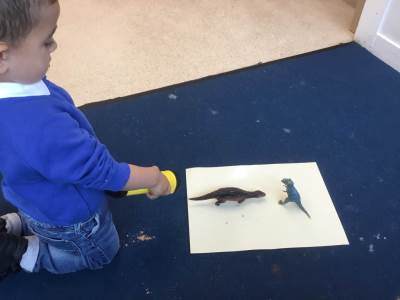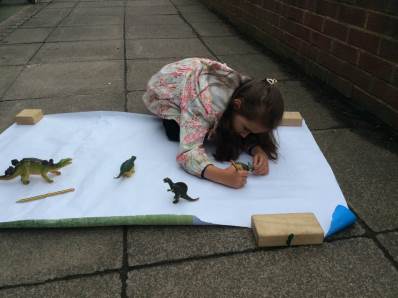STEM Week
This year Fell Dyke Celebrated STEM Week in a range of different ways. The theme of the week was 'Time' and each year group added their own unique spin to their activities.
Children in Nursery looked at shadows and how shadows are made. They went outside and looked at their own shadow, then tried to draw around the shadows of dinosaurs on the ground. Children found that it was tricky when the sun disappeared so they experimented with making shadows using torches. They looked at what happened when the torch was moved and how that made the shadow change.
Reception Class started by looking and exploring different ways they could tell and measure the time. They then started their first activity of creating sand timers and measuring how long they took. The second experiment of the day was printing with light. They found a range of natural materials and stuck them to coloured paper then left the paper in the sun to try and bleach and leave a print of our objects. They discussed how this experiment was tricky as the sun then went in and it rained affecting the chance of success. In the afternoon, they used stop watches to measure how many different activities they could do in 30 seconds i.e. how many jumps, claps, hops, shuttle runs and counting. They ended the day with story time based on the them time reading stories such as The Tree, The Bad Tempered Ladybird and Jasper's Beanstalk.
In maths lessons this week, all children in Key Stage 1 learned about time which led into a special activity morning on Thursday. With the help of our fantastic Year 6 ambassadors, each class in Key Stage 1 put their learning from the week into action and participated in a number of time related games and challenges.
Year 3 and 4 used the theme of ‘Time’ to observe our local environment over time. They used the school grounds to observe the different types of invertebrate that live there. They took data samples and created tables, bar charts and classification keys to represent findings. They discovered that the largest group of invertebrates that live on our school grounds are insects. They think this might be because they are the largest group of invertebrates on earth. They also live above ground and are easier to observe. The children will be keeping track of these animals over the year to see if this changes.
Year 5 and 6 investigated pendulums, through asking a question: How does the length of a string affect a pendulum's swing?
They concluded that the shorter the string, the faster the pendulum swings.
The results followed a pattern between most string length but not from 1 meter to 80cm. They decided this could be for a number of reasons:
- Past 80cm, the string’s length could make less of a difference to the length of the swing.
- We started with 1 meter and had less practice starting and stopping at this early stage.
They concluded that we would need more data (more swings) to test these ideas.
What a fantastic week of learning: well done everyone!

